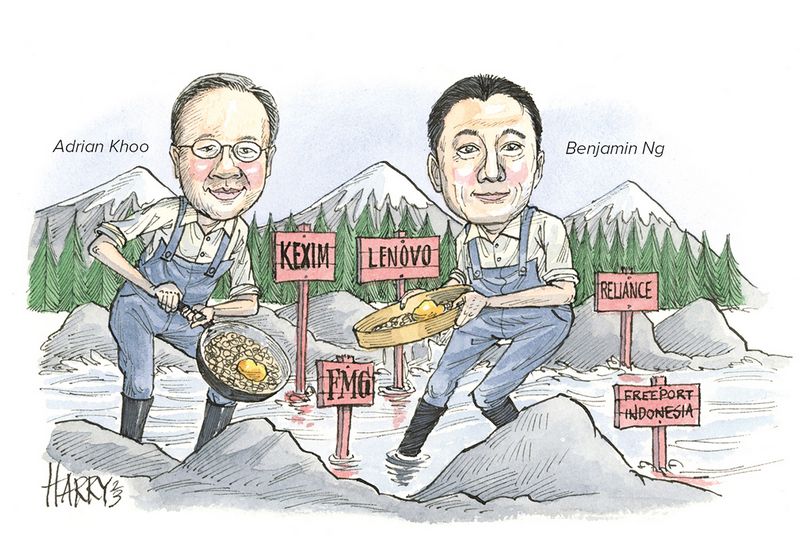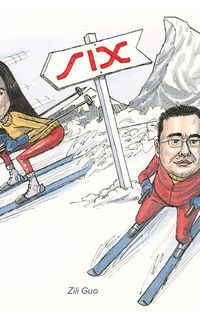Mining for gold:
Asian bond volumes disappointed in 2022, as issuers and investors faced new geopolitical headwinds and rising interest rates. The deals that were done had to be cultivated and packaged for a skittish market. For its ability to bring Asian issuers to the G3 market throughout the year, Citigroup is IFR Asia’s Bond House of the Year.
![]()
Citigroup, in contrast to many of its peers, did more than just stand its ground in 2022. The bank was proactive as it consistently found market windows for its clients and supported them as they sought the best possible funding opportunities.
“This year has been a challenging one. There has been a significant drop in activity,” said Adrian Khoo, co-head of Asia debt capital markets, loans and acquisition finance. “We are figuratively taking people by the hand.”
As Chinese issuance plummeted, taking out what used to make up the majority of new supply, other parts of the region became increasingly important.
Citi dominated offshore deals from South Korea, one of the bright spots in Asia’s primary market, with an 11.7% market share for Korea G3.
Activity from India was muted, but Citi helped open the year with a blockbuster US$4bn trade from Reliance Industries and brought a US$475m issue from Shriram Transport Finance, India’s only offshore social bond in 2022.
The bank also led deals across ASEAN, like the Republic of the Philippines’ US$2.25bn offering in March that reopened issuance in the region following the invasion of Ukraine, and Freeport Indonesia’s US$3bn multi-tranche debut in April that included a 30-year tranche, even as investors were becoming anxious about duration.
In Australia, it brought a US$4bn multi-tranche debut bond for biotechnology company CSL to refinance an M&A loan, and a US$1.5bn trade for Fortescue Metals Group that included a green tranche, the first from a global mining company.
“We are one of the only banks that has a dominant position in every country we cover,” said Nitesh Dugar, head of South and South-East Asia debt capital markets. “We want to focus on each and every country because markets will be cyclical.”
Such an approach was key to Citi’s ability to top the league tables in 2022. The bank grabbed the top spot for the Asia Pacific ex-Japan G3 currency league table with an 8% market share representing nearly US$20bn in volume.
Citi’s market-leading status was supported by its role as an adviser to its core clients. The bank’s concentration on investment-grade borrowers, and its ability to guide them through difficult market conditions, meant issuers could lean on it when markets were turbulent.
“We are agnostic on loans or bonds,” said Benjamin Ng, co-head of Asia debt capital markets, loans and acquisition finance. “We have to give the client the right advice within the market conditions.”
Those market conditions changed swiftly in 2022, with US Treasuries making sharp moves during bookbuilding. Citi had to pick the right windows, and have the confidence to push ahead in uncertain conditions.
The bank’s savvy and market experience, supported by Khoo and Ng’s tenures of more than 20 years each at the bank, allowed Citi to secure global coordinator positions on trades for both long-standing and newer clients.
In the FIG space, it helped Hanhwa Life bring Asia’s first sustainable insurance capital offering, ASB Bank sell New Zealand’s first offshore Tier 2 bond, and China Construction Bank issue the largest Asian Tier 2 deal of the year.
“We run our own plays and our own strategy,” said Khoo. The year was less about innovation and more about liability management and optimising balance sheets, he said.
Chinese computer manufacturer Lenovo Group ran a tender alongside its July bond deal, in which it raised US$625m from a 5.5-year note and US$625m from a 10-year green bond. The trade was a standout not just because of the ESG angle, but also because of the rarity of Chinese corporates in the offshore market last year and the general investor aversion to long tenors.
Other LM exercises for the likes of Bharti Telecom and AAC Technologies might not have added to Citi’s league table volume, but showed it could spot the right opportunities for its clients.
To see the digital version of this report, please click here
To purchase printed copies or a PDF, please email shahid.hamid@lseg.com










